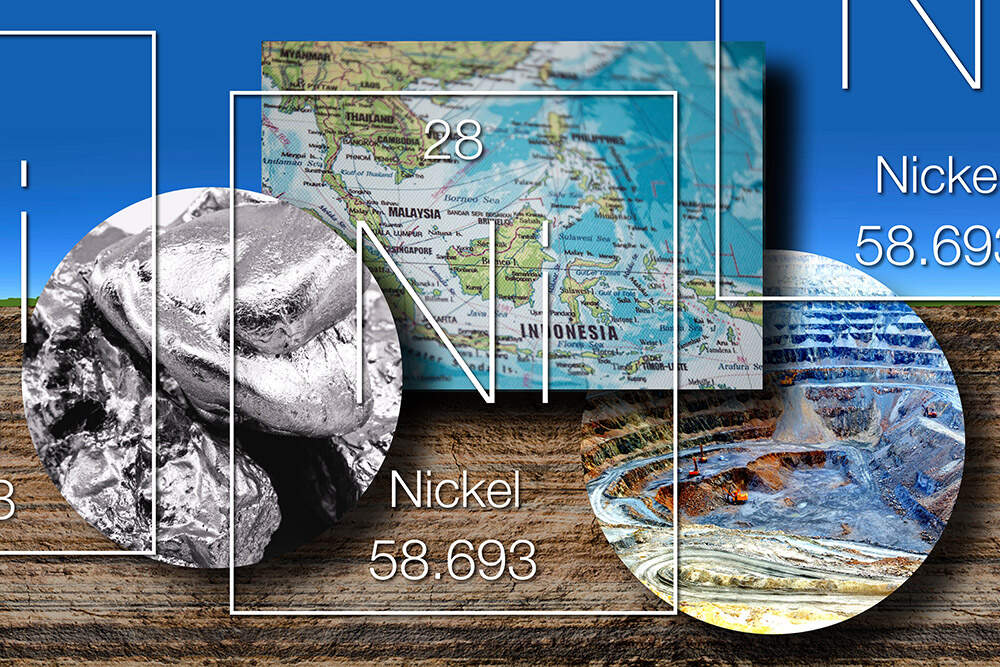Week of wonder: Returning to the wild
Digest
This podcast delves into the world of rewilding, a process of restoring natural ecosystems and processes to areas that have been degraded by human activity. The episode features Isabella Tree, a British author and conservationist, who shares her experience rewilding the NEP estate in West Sussex, England. The podcast begins by contrasting the soundscape of the estate before and after rewilding, highlighting the dramatic shift from a "biological desert" to a vibrant ecosystem. The decision to rewild the NEP estate was driven by financial necessity, as the land was losing money due to its heavy clay soil and inability to compete with more productive farms. This financial crisis led to a shift in thinking, allowing them to explore alternative land management practices. The podcast then explores the influence of Franz Vera, a doctorologist who advocated for using large free-roaming animals to restore natural habitats. The NEP estate began by introducing old English long horns and Exmoor ponies, mimicking the role of extinct large herbivores like aurochs and tarpans. The podcast then explores rewilding on smaller properties, featuring listener stories about their experiences with rewilding their backyards and small acreages. These stories highlight the benefits of rewilding, including increased biodiversity, a return of native species, and a sense of connection to nature. Isabella defines rewilding as a spectrum, ranging from large-scale projects with apex predators to smaller-scale efforts where humans act as keystone species. She emphasizes the importance of understanding natural processes and replicating them in different contexts. The podcast then discusses the natural process of plant and tree regeneration at the NEP estate, highlighting the role of large herbivores in maintaining habitat diversity. The episode then addresses the common American obsession with manicured lawns and the environmental impact of lawn care practices. Isabella advocates for alternative lawn approaches, such as wildflower lawns and "giving your lawn a Mohican," allowing for greater biodiversity and reducing chemical inputs. The podcast then discusses the importance of restoring natural water systems, highlighting the benefits of allowing rivers to flow freely on their floodplains. Isabella describes the NEP estate's efforts to restore a river and the resulting increase in biodiversity, including the return of rare species. The episode then explores the impact of rewilding on human well-being, sharing how rewilding the NEP estate led to a sense of relaxation and a shift in perspective. The podcast concludes with a discussion about the challenges of rewilding in urban environments, where regulations and aesthetic preferences can limit the potential for natural landscapes. Isabella encourages listeners to advocate for change and embrace a more nature-centric approach to urban spaces.
Outlines

Rewilding: Restoring Nature and Ourselves
This podcast explores the concept of rewilding, highlighting the benefits of restoring natural processes and ecosystems through the introduction of large herbivores and the restoration of natural processes. The episode features Isabella Tree, a British author and conservationist, who shares her experience rewilding the NEP estate in West Sussex, England. The podcast begins by contrasting the soundscape of the estate before and after rewilding, highlighting the dramatic shift from a "biological desert" to a vibrant ecosystem.

The Decision to Rewild
The decision to rewild the NEP estate was driven by financial necessity, as the land was losing money due to its heavy clay soil and inability to compete with more productive farms. This financial crisis led to a shift in thinking, allowing them to explore alternative land management practices.

Introducing Large Herbivores
The podcast then explores the influence of Franz Vera, a doctorologist who advocated for using large free-roaming animals to restore natural habitats. The NEP estate began by introducing old English long horns and Exmoor ponies, mimicking the role of extinct large herbivores like aurochs and tarpans.

Rewilding on a Smaller Scale
The podcast then explores rewilding on smaller properties, featuring listener stories about their experiences with rewilding their backyards and small acreages. These stories highlight the benefits of rewilding, including increased biodiversity, a return of native species, and a sense of connection to nature.

Rewilding as a Spectrum
Isabella defines rewilding as a spectrum, ranging from large-scale projects with apex predators to smaller-scale efforts where humans act as keystone species. She emphasizes the importance of understanding natural processes and replicating them in different contexts.

Rewilding Landscapes: From Lawns to Water Systems
The podcast then discusses the natural process of plant and tree regeneration at the NEP estate, highlighting the role of large herbivores in maintaining habitat diversity. The episode then addresses the common American obsession with manicured lawns and the environmental impact of lawn care practices. Isabella advocates for alternative lawn approaches, such as wildflower lawns and "giving your lawn a Mohican," allowing for greater biodiversity and reducing chemical inputs. The podcast then discusses the importance of restoring natural water systems, highlighting the benefits of allowing rivers to flow freely on their floodplains. Isabella describes the NEP estate's efforts to restore a river and the resulting increase in biodiversity, including the return of rare species.

Rewilding and Well-being
The episode then explores the impact of rewilding on human well-being, sharing how rewilding the NEP estate led to a sense of relaxation and a shift in perspective. The podcast concludes with a discussion about the challenges of rewilding in urban environments, where regulations and aesthetic preferences can limit the potential for natural landscapes. Isabella encourages listeners to advocate for change and embrace a more nature-centric approach to urban spaces.
Keywords
Rewilding
Rewilding is the process of restoring natural processes and ecosystems to areas that have been degraded or lost due to human activity. It involves allowing natural processes to take their course, often with the introduction of large herbivores and other keystone species.
NEP Estate
The NEP estate is a 3,500-acre property in West Sussex, England, where Isabella Tree and her husband have undertaken a large-scale rewilding project. The estate was previously used for conventional farming but has been transformed into a thriving ecosystem through the introduction of large herbivores and the restoration of natural processes.
Franz Vera
Franz Vera was a doctorologist who advocated for using large free-roaming animals to restore natural habitats. His work has influenced many rewilding projects, including the one at the NEP estate.
Old English Long Horns
Old English Long Horns are a breed of cattle known for their long, sweeping horns and their ability to thrive in harsh conditions. They were introduced to the NEP estate as a proxy for the extinct aurochs, playing a vital role in restoring the ecosystem.
Exmoor Ponies
Exmoor Ponies are a hardy breed of horse native to the Exmoor region of England. They were introduced to the NEP estate as a proxy for the extinct tarpan, helping to control vegetation and create diverse habitats.
Invasive Species
Invasive species are non-native plants or animals that can outcompete native species and disrupt ecosystems. They often thrive in degraded landscapes and can be difficult to control.
Biophilia
Biophilia is the innate human tendency to connect with nature and living things. It is a fundamental part of our well-being and is essential for our physical and mental health.
Santa Monica Mountains National Recreation Area
The Santa Monica Mountains National Recreation Area is a park located just outside of Los Angeles, California. It is home to a diverse range of ecosystems and is undergoing a large-scale restoration project to combat the effects of invasive species and wildfire.
Q&A
What motivated Isabella Tree and her husband to rewild their estate?
The decision was driven by financial necessity. The estate was losing money due to its heavy clay soil and inability to compete with more productive farms. This financial crisis led to a shift in thinking, allowing them to explore alternative land management practices.
How does rewilding differ on large and small properties?
Rewilding is a spectrum, with large-scale projects often involving apex predators, while smaller-scale efforts require human intervention to mimic the role of missing keystone species. The key is to understand natural processes and replicate them in different contexts.
What are some of the benefits of rewilding for human well-being?
Rewilding can lead to a sense of relaxation, a shift in perspective, and a deeper connection to nature. It encourages us to embrace a less controlled approach to our landscapes and trust in the natural world.
What are the challenges of rewilding in urban environments?
Regulations, aesthetic preferences, and safety concerns can limit the potential for natural landscapes in urban areas. However, it is important to advocate for change and embrace a more nature-centric approach to urban spaces.

























